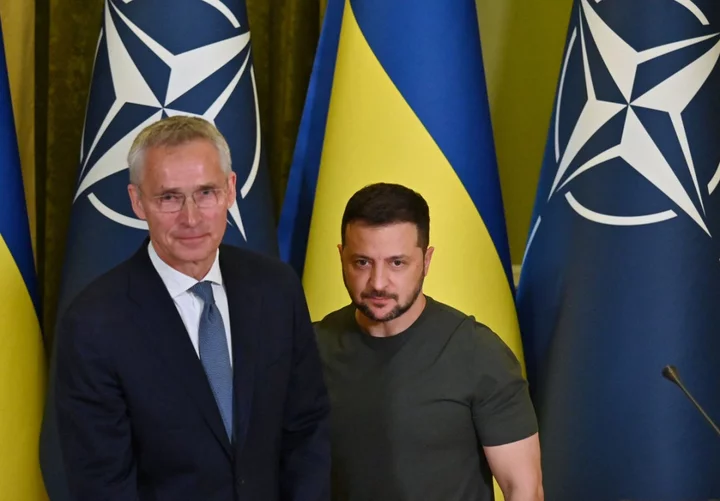
Zelensky says ‘only matter of time’ before Ukraine becomes Nato member
President Volodymyr Zelensky said it was only a "matter of time" before Ukraine became an official Nato member as he met the defence bloc's chief in Kyiv. Kyiv has pushed to join Nato despite Russia's threat. Nato secretary-general Jens Stoltenberg reiterated on Thursday that Ukraine would be a member of the trans-Atlantic military alliance. He said the bloc would stand with Kyiv as long as it takes. Mr Stoltenberg met the war-time president in Kyiv to discuss the status of the ongoing Russian war, a day after Moscow accused Ukraine's allies of helping plan and conduct last week’s missile strike on the Black Sea Fleet’s headquarters in the annexed Crimean Peninsula. "We discussed strengthening Ukraine's air defence further in order to protect people from Russian terror," Mr Zelensky said in a post on social media X, describing Nato as a "de facto" ally. He added that Mr Stoltenberg agreed to make efforts to get the bloc members to provide additional air support to protect Ukraine’s power plants and energy infrastructure that were damaged by Russian attacks. The president said he reminded Mr Stoltenberg of the persistent drone, missile and artillery attacks that often strike residential areas. At least three women were killed in the street after artillery hit a residential area in Kherson in a fresh bout of Russian attack on residential places. “In the face of such intense attacks against Ukrainians, against our cities, our ports, which are crucial for global food security, we need a corresponding intensity of pressure on Russia and a strengthening of our air defence,” Mr Zelensky said. Nato has contracts for £2.08bn in ammunition for Ukraine, including 155 mm Howitzer shells, anti-tank guided missiles and tank ammunition, Mr Stoltenberg said. He continued: "The stronger Ukraine becomes, the closer we come to ending Russia’s aggression. “Russia could lay down arms and end its war today. Ukraine doesn’t have that option. Ukraine’s surrender would not mean peace. It would mean brutal Russian occupation. Peace at any price would be no peace at all.” Mr Zelensky separately met France’s defence minister Sebastien Lecornu to discuss the supply of weapons to Ukraine. Mr Lecornu brought a delegation with 20 representatives from French defence contractors who manufacture drones, robots, artillery, ammunition and employ artificial intelligence and cybertechnology. With agency inputs Read More Ukraine-Russia war – live: Putin’s strikes kill five in Kherson and Donetsk regions Ukraine war: British national killed in action while volunteering as medic Russian figure skater Kamila Valieva's Olympic doping case will resume for two more days in November The Body in the Woods | An Independent TV Original Documentary The harrowing discovery at centre of The Independent’s new documentary
2023-09-29 13:49

Asian Stocks Trim Biggest Quarterly Loss in a Year: Markets Wrap
Stocks rose in Asia on the last trading day of the quarter amid optimism over spending during China’s
2023-09-29 13:28
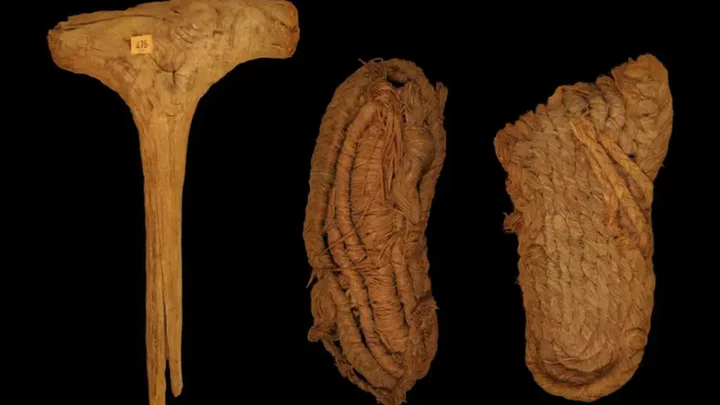
Europe's oldest shoe found in Spanish bat cave
The 6,000 year old woven sandals are among dozens of prehistoric objects being analysed by scientists.
2023-09-29 12:55
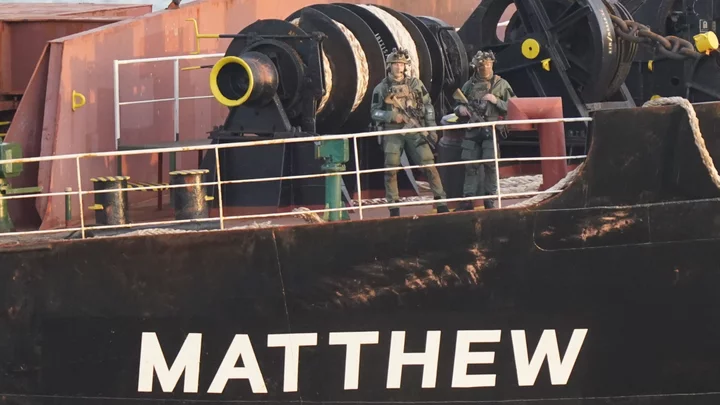
Ireland 'no soft touch' on drugs, says minister
A seventh person has been arrested after the largest drug seizure in the history of the Irish state.
2023-09-29 00:57
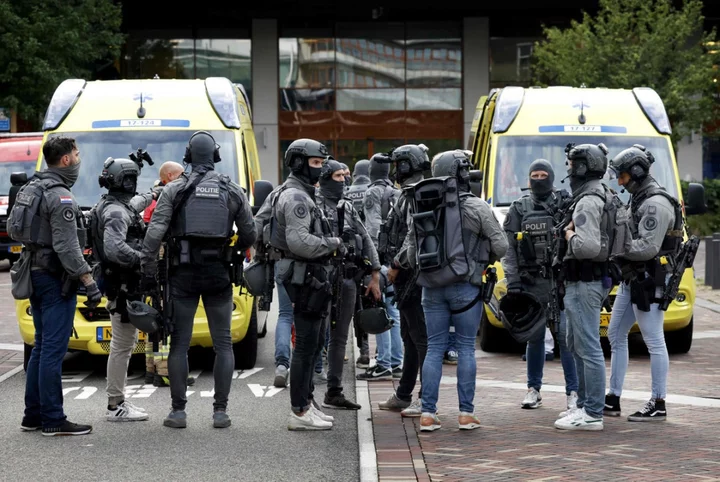
Several killed in Rotterdam shootings at university hospital
Several people have been killed in two shootings at a university hospital and a nearby home in Rotterdam. Rotterdam police said on X, formerly Twitter, that they were informing next of kin before releasing any more details. A suspect had been arrested after the shootings at the Erasmus Medical Centre and the nearby apartment. Fire also broke out at both locations, local authorities said. Police had said that a man wearing military clothing and carrying a handgun had opened fire in a classroom at the university hospital, wounding one person. They also reported a shooting earlier at the home nearby. Police said they had arrested a 32-year-old man under the hospital’s helipad and that the Rotterdam resident was a suspect in both shootings, though no motive was immediately announced. The force initially said the gunman may have left the scene on a motorbike, but they later said an arrest team was checking the medical centre to establish if he was still in the building. They said they did not believe any other shooters were involved. Videos posted online showed police instructing students, some wearing medical gowns, to run outside as heavily armed arrest teams arrived at the scene. One video showed a man in handcuffs wearing what appeared to be camouflage pants, whilst the Erasmus Medical Centre appealed on social media for people not to attend the hospital. Police were still in search of possible victims or people hiding on Thursday evening, Dutch news agency ANP reported citing police. “This is a very dark day,” caretaker Minister of Justice and Security Dilan YeÅŸilgöz-Zegerius was quoted by newspaper de Telegraaf as saying in comments made in Brussels. More follows... Read More Three killed in shootings and explosion in Sweden as deadly gang feud escalates Shooting incident in Slovak capital leaves 1 dead, 4 injured Teen testifies about boy's death and firearms training at New Mexico compound Florida auto shop owner and angry customer shot each other to death, police say Child soldiers, executions, bombs: Deadly gang violence turns Sweden into a ‘war zone’ Elite army unit storms ship to seize Ireland’s biggest drugs haul Child soldiers, executions, bombs: Deadly gang violence grips Sweden Putin’s forces pushed back as Kyiv ‘gradually gaining ground’ in counteroffensive
2023-09-29 00:49
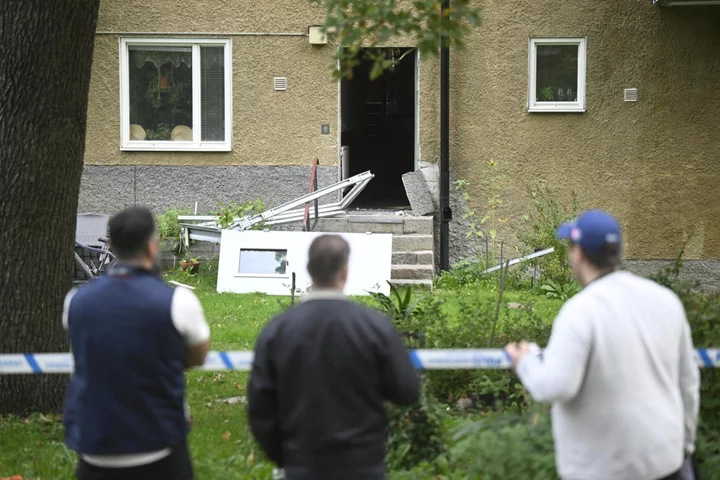
Child soldiers, executions, bombs: Deadly gang violence grips Sweden
Linda, a Swede in her forties, is standing in the doorway with her children. She looks visibly upset and tired. “I didn’t sleep much last night, I can’t take it anymore,” she tells The Independent. “The murders, the bombs, the constant police presence on the ground and police helicopters in the air. Me and my children need to get out of here. We need to move.” Linda lives in a block of flats in Hasselby, a suburb west of Stockholm, where a bomb exploded on September 25. Now, the day after, there is debris and broken glass everywhere. The bombed-out apartment next door is cordoned off. Police are still searching the premises. “I was in my home on Monday night,” says Linda. “Luckily, the children were not home yet. I heard a massive blast and then loud screaming. I ran into the street and could hear the moans of a man inside the flat that had been hit. Police arrived and took him and two other injured away.” The bloody gang war in Sweden has further intensified this week, with 11 killed this month alone. On Wednesday evening, a 20-year-old woman died in Uppsala, north of Stockholm, after an explosion ripped through the house she was staying in. She was not connected to the feud. Two young men also died from their wounds after being shot south of the capital. ‘It’s like a war zone’ Like several others in Hasselby, Linda doesn’t want her family name published in the newspaper. There is a fear of reprisals from the violent gangs that terrorise many Swedish cities. In 2022, there were 391 shootings in Sweden, 62 of which were fatal, making Sweden the gun murder capital of Europe. “I am not so worried about my girls, but I do worry about the boys. My oldest is thirteen. I need to protect him. He can’t get involved in this terrible gang war,” says Linda. Hasselby Strand mainly consists of modern flats, highrises, and other three-storey buildings like Linda’s. Children are playing football on the floodlit pitch a few hundred metres away. A father and his son are out walking their dog. “Hasselby was a wonderful place to live, only 30 minutes from the centre of Stockholm. Here we have the sea, it is green and leafy, and we used to love it here. I have lived in Hasselby Strand since 1995, but then the foreigners started coming,” Erik Petterson tells The Independent. “Don’t get me wrong, I am not a racist, but there is no way around it. The trouble started when more and more migrants came to Hasselby. Now it is like a war zone. It is like a bad dream, a nightmare.” The story repeats itself in most Swedish cities. Almost every day, there are new stories from the brutal gang war. The uneasiness in talking about migrants and foreigners is notable when speaking to locals in Stockholm. Sweden was, for many years, one of the most welcoming countries in Europe in opening its borders to migrants. The number of foreigners has increased dramatically. In 2012, 1.47 million inhabitants had been born outside Sweden. This number increased to 2.15 million by 2022. Foreign-born citizens made up around 20 per cent of the population of Sweden in 2022, according to Statista, quoting figures from Sweden’s statistics office. “Now, everything has changed. Sweden has changed. I don’t recognise the Sweden I knew anymore. And the violence seems to be spreading everywhere. It feels like it is getting closer and closer,” says Katarina Lindgren, a woman walking with her friend in central Stockholm. Blaming migration ‘an oversimplification’ Politically, Sweden has taken a sharp turn to the right. In the 2022 general election, the nationalist right-wing populist party, the Sweden Democrats (SD), got 20 per cent of the vote, becoming Sweden’s second-biggest party. SD is backing the centre-right coalition government through a supply and confidence deal. SD is strictly anti-immigration, and Sweden is tightening its migration policies dramatically in line with the hardline stance taken in neighbouring Denmark with some of Europe’s most restrictive migration laws. However, according to Manne Gerell, a leading Swedish criminologist from Malmo University, the clampdown on migration to solve the gang wars is a politically motivated oversimplification. “There is no doubt that immigration and bad integration are part of the problem, but it is not the whole story. Look at Germany, for instance. They have received a lot of migrants recently, but there is no rise in gun violence there. If it were a simple linear equation that more migrants equals more violence, you would expect German gun violence to follow the pattern of Sweden, but it is not,” he tells The Independent. Surprisingly, part of the explanation for the spread of gang violence in Sweden might lie in a successful police operation. In 2020, French police broke the codes of criminal communications network EncroChat. This enabled police all over Europe to follow crimes and the people behind them online in real time, leading to thousands of arrests across Europe. More than 400 criminals in Sweden were arrested. The resulting convictions saw sentences totalling more than 1,500 years in prison. The head of the Swedish gangs was, so to speak, cut off, but the outcome was not what was expected. “Instead of the underworld calming down, the arrests led to chaos, where very young gang members are now fighting for dominance of the lucrative drugs market. The fact that there is no real mafia tradition in Sweden means there was no one to put the lid on the kettle, and now we have headless chickens running around with automatic weapons shooting each other,” says journalist Diamant Salihu, who has written several books about the escalating gang violence in Sweden. “Right now, we have child soldiers being used to shoot people and plant deadly explosives. There is a war between two rival gangs, but also a war between the leaders of one gang [the Foxtrot network], where one of the gang leaders is in Turkey pulling the strings on who the child soldiers should target. The war has escalated so the child soldiers now go after family members and friends,” he says. In September alone, there have been dozens of incidents. A 13-year-old boy was found executed in the woods close to Stockholm, and the mother of a gang member was killed. Sweden’s justice minister, Gunnar Strommer, describes the escalation of the gang war as “domestic terrorism”. “There are many roots in the Swedish tree that are rotten,” says Mr Salihu. “Failed integration and segregation are to blame, but so is very ineffective policing. Only between 20–25 per cent of these gun crimes are solved. This makes it easier for the gangs to recruit more children and turn them into criminals and killers.” Swedish police say they are fighting an uphill battle against a ruthless enemy of the state. “The situation is reminiscent of low-intensive warfare,” says Jale Poljarevius, police chief and head of intelligence for the area surrounding Stockholm and Uppsala. “Organised crime groups [OCGs] are using military weapon systems [automatic guns], explosives and hand grenades. “If they can’t get to their target, they attack their families. Sometimes the attacks result in death or injured innocent victims, just like victims of war. “Since 2018 Sweden has the highest death rates in Europe, among the population of 15- to 29-year-olds.” Swedish peculiarity Gangs in Sweden used to be a regional problem, but it has turned into a national plague. Sweden used to be a very inclusive society, where almost everybody bought into the idea of togetherness in an egalitarian way. The state still plays an unusually controlling role in, for instance, keeping checks on how much alcohol its citizens consume. In Stockholm, most people wait for a green light before crossing the road, even when there are no cars. Everybody is supposed to play their part in the Swedish puzzle. But as more migrants came to Sweden, little was done to ensure they felt part of this society. In Hasselby, there is a part of town with big houses where the well-to-do, mostly white Swedish people, live and another that is much poorer. According to Lisbeth, who The Independent talks to on the train to Hasselby, the two rarely mix. “Both the Conservatives and the Social Democrats who have governed Sweden for decades have been passive bystanders to an ever-evolving problem of segregation and lack of integration. Maybe it is not the migration, but the lack of planning for a new society that is the culprit,” said Mr Salihu, who himself has Albanian roots. The Scandinavian model of a fair and progressive society has been exported to countries worldwide and was, for instance, a big inspiration behind Tony Blair’s New Labour movement. But the Swedish model is now under threat from within. For Linda and her children in Hasselby, the only way is out. “I don’t know where we will go”, she says, “but I can’t live like this. Before the bomb we had a murder in our highrise. This is no longer a good place to live.” Read More Three killed in shootings and explosion in Sweden as deadly gang feud escalates A shooting in a pub in Sweden has killed 2 men and wounded 2 more, police say. Teenager is latest victim in spate of deadly shootings across Sweden Three killed in shootings and explosion in Sweden as deadly gang feud escalates ‘National retrofit mission’ urged to better insulate Britain’s leaky homes Deadly violence continues in Sweden. 3 people killed in overnight shootings and an explosion
2023-09-28 23:56
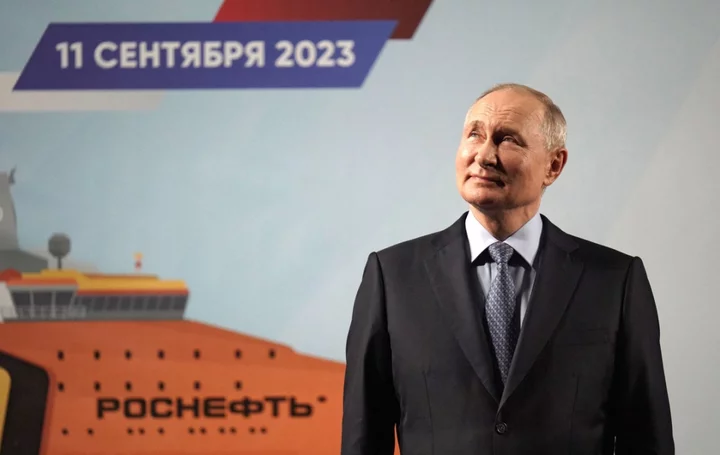
Putin’s shameless UN charm offensive - with stolen grain from Ukraine
A desperate Vladimir Putin, increasingly isolated on the world stage, is eyeing a return to the UN Human Rights Council – and he has launched a shameless charm offensive to get him there. Armed with stolen Ukrainian grain, the Russian president is on a mission to curry favour with potential backers ahead of a vote for council membership next month, although his efforts are likely to fall short. Two years after being kicked off the panel for invading its neighbour, Putin has ordered his diplomats to try and secure the backing of enough countries for Moscow to beat two other eastern European nations on 10 October. A Russian position paper circulated to dozens of other countries ahead of the vote strikes a markedly different tone to the nuclear threats and wartime sabre-rattling of Putin’s addresses since he invaded Ukraine, calling for “constructive mutually respectful dialogue” and referring to the 47-member Human Rights Council as “a key body in the United Nations system”. Russia is competing with Albania and Bulgaria to win one of two spots up for grabs on the council that are reserved for central and eastern European nations. Ironically one of the countries being replaced is in fact Ukraine – its and the Czech Republic’s terms are expiring. Moscow is going all out to try and reverse the April 2022 vote that saw it booted, experts tell The Independent. Then, 93 countries voted in favour of suspending Russia, while 24 voted against and 58 abstained. “Russia is apparently offering incentives such as grain and arms in exchange for votes. Along with other moves to deepen relations with Africa, we know that President Putin had already promised African states grain back in July at the Russia-Africa Summit,” says Yousuf Syed Khan, a senior lawyer at international human rights firm Global Rights Compliance. “At the same time, Russia is engaged in the systematic pillage of Ukraine’s grain, having rebuilt infrastructure to harness the ability to export millions of tonnes from occupied Ukrainian territory into Russia. This is not a coincidence,” the war crimes lawyer adds. Russia has been accused of weaponising global food security in its war against Ukraine, targeting key Ukrainian infrastructure with missile strikes while at the same time pulling out of a UN-brokered deal that had allowed Kyiv to keep exporting grain to other parts of the world where rising food prices are pushing more people into poverty. “The bottom line is that Russia is in no better standing to join the Human Rights Council now than it was nearly 18 months ago when it was voted off. In many ways, its bid to re-join and the outcome of the vote will be a barometer of Russia’s international standing,” Khan says. Alongside what it can offer in terms of trade, Khan says Russia will likely try to convince smaller countries that they do not want to be “instrumentalised to serve the political wills of Western nations”. “This logic may speak to some of the African States that Russia will desperately need to vote in its favour,” he tells The Independent. This tallies with the language in the position paper Russian diplomats have already distributed. The paper says Moscow “believes it is important to prevent the increasing trend of turning the Human Rights Council into the instrument, which serves political wills of one group of countries punishing non-loyal governments for their independent internal and external policy,” reported CNN. Alfred de Zayas, a former independent UN expert on human rights, says he believes the odds are stacked against Russia rejoining the council, despite the concerns voiced in recent days by Western officials. “At present, there are five eastern European states represented in the council – Czechia [the Czech Republic], Georgia, Lithuania, Montenegro and Ukraine. The terms of Czechia and Ukraine expire in December 2023. There are two openings but three candidates – Albania, Russia and Bulgaria,” he tells The Independent. De Zayas says that there was little in Russian foreign minister Sergei Lavrov’s recent comments at the UN General Assembly in New York to suggest a rapprochement with “the collective West” is any nearer. But at the same time, he argues that including Russia on multilateral platforms like the Human Rights Council is exactly what is needed to work towards peace talks to end the Ukraine war. “Maximum inclusiveness, bringing in as many countries as possible would be desirable, so that meaningful exchanges of ideas and perspectives could be conducted. Excluding Russia is counterproductive because it closes an important avenue of compromise and quid pro quo,” says De Zayas. “Precisely because there is a war going on, it is crucial to take advantage of every forum of dialogue,” he suggests. For Khan, however, Russia’s ongoing abuses in Ukraine are likely to see Putin’s charm offensive fall short. “Since the initial days of its full-scale invasion in February last year, Russia has been engaged in starvation as a method of warfare across Ukraine,” he says, recounting Moscow’s significant human rights violations during the conflict. “Unlawful conduct includes the laying of sieges to areas such as Chernihiv and Mariupol while denying access to even the most basic items required for civilian survival such as food, medicine and potable water. “More recently, we have seen Russia attacking grain ports along the Danube, forcing Ukraine to pivot to the Sulina Channel with its exports and to work with Romania, to elicit sanctions relief for Moscow. Russia also destroyed at least 270,000 tonnes of grain in late July and early August alone. None of this is being done with any valid military objective.” The latest report by Mariana Katzarova, the UN’s special rapporteur on Russia’s rights situation within its own borders, noted that rights have been on a “steady decline” over the last two decades but things have “significantly deteriorated since its invasion of Ukraine in February 2022”. Mass arbitrary arrests, detentions and harassment were recorded for “anyone speaking out against Russia’s war on Ukraine or daring to criticise the government’s actions,” the report found. The UN’s website says that “with membership on the [Human Rights] Council comes a responsibility to uphold high human rights standards”. “One would hope that all nations vote in line with the HRC membership criteria,” says Khan, who has worked with the UN for a decade on atrocity inquiries, adding that on this point Russia is falling far short. Read More Ukraine-Russia war - live: ‘Nuclear crisis’ warning over Putin-controlled power plant on the frontline Russia tries to rejoin UN Human Rights Council Russia ‘weaponised food and deliberately caused starvation’ in Ukraine Ukraine repels Russian attacks as Putin’s forces try to recapture territory lost in counteroffensive
2023-09-28 22:22
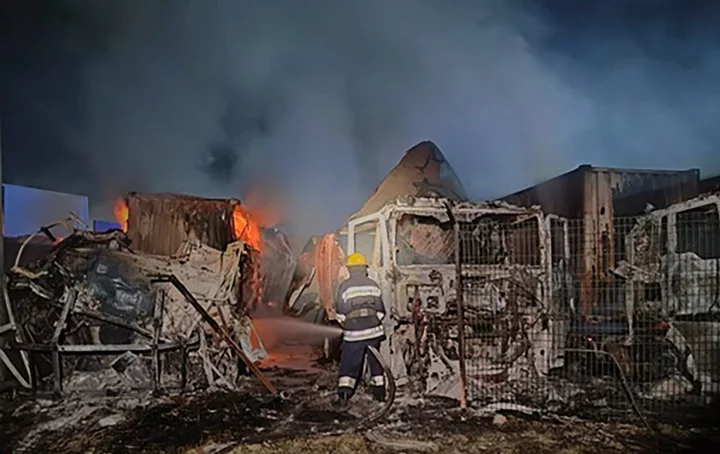
Ukraine war – live: Russia launches over 40 drones in overnight attack from Black Sea
Ukraine says its air defences shot down 34 kamikaze drones this morning and overnight as Russia launched a major new wave of air strikes across the country. Russia’s attacks involved at least 44 Iranian-made Shahed drones in total, according to Ukraine’s Air Force. “Fighter aircraft, anti-aircraft missile units and mobile fire groups were engaged to repel the attack,” Ukraine’s military said on Telegram. A large number of the drones were fired on southern Ukrainian cities from the Black Sea, the air force said. It comes as Kyiv said hundreds of fighters from the Wagner mercenary group have returned to Ukraine to fight in Russia’s continuing invasion for the first time since the group’s leader Yevgeny Prigozhin died in August. The Ukrainian military said it had seen “no significant impact” on frontline dynamics from Wagner’s return to the battlefield, however. Earlier, there were reports that a fresh offensive by Russia’s forces in the coming weeks is “unlikely”, according to British intelligence. Britain’s Ministry of Defence reported that patterns in Russian deployments suggest that Vladimir Putin’s troops are “overstretched” across the frontlines in Ukraine. Read More Viktor Sokolov seen for second time in newly emerged video as he claims Russia’s Black Sea Fleet ‘performing successfully’ New video of ‘dead’ Russian Black Sea fleet commander raises doubts over Ukraine’s claim Hillary Clinton mocks Putin over Nato expansion: ‘Too bad, Vladimir. You brought it on yourself’ Ukrainian forces ‘enjoy success’ near Bakhmut as Putin deploys reserves
2023-09-28 14:54
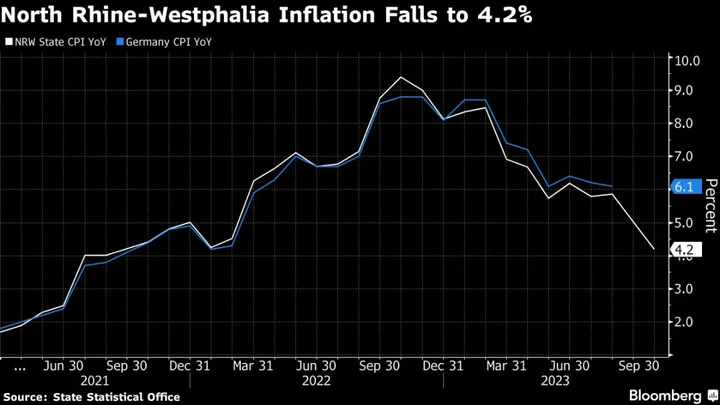
German State Data Points to National CPI Within Survey Range
Inflation in the German state of North Rhine-Westphalia fell to 4.2% on the year in September from 5.9%
2023-09-28 14:52
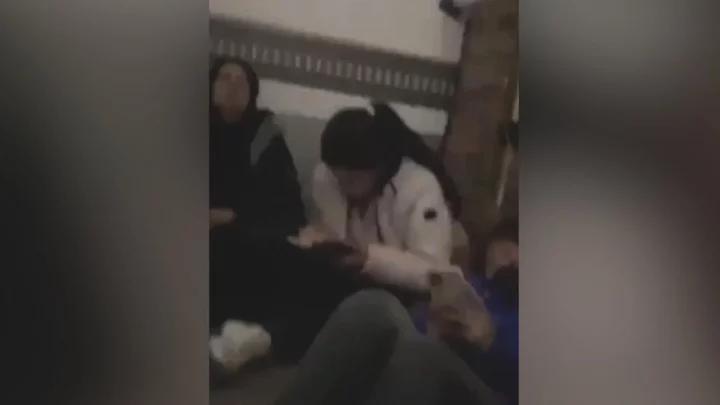
BBC helps free suspected migrants stuck in refrigerated lorry
A woman spoke to us from inside the lorry in France, saying she was struggling to breathe.
2023-09-28 12:48
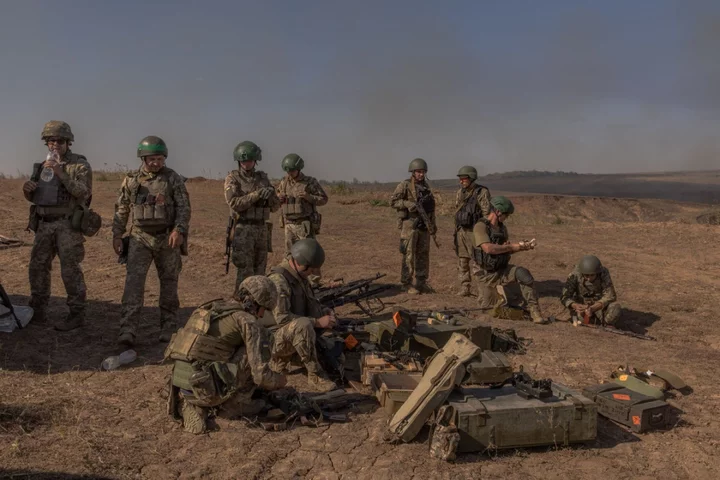
Ukraine repels Russian attacks as Putin’s forces try to recapture territory lost in counteroffensive
Ukrainian soldiers fought off fierce Russian attacks on the battlefield on Wednesday as the invading troops continued to recapture lost territory in eastern Ukraine, military officials said. Some progress was also seen in southern Ukraine – another pocket of heavy territorial battle in Russia’s 20-month-old invasion. "We continue to repel intense enemy attacks near Klishchiivka and Andriivka. The enemy is still storming these positions with the hope of recapturing lost positions, but without success," Ilia Yevlash, a spokesperson for Ukraine‘s eastern group of forces, told national television. The two villages – Klishchiivka and Andriivka – near Bakhmut were retaken from Russian control in mid-September in a span of three days, marking a significant territorial feat in the Ukrainian counteroffensive. There had been 544 Russian shelling incidents in the past 24 hours in the area, seven combat clashes and four air attacks, the military spokesperson said. Officials, including president Volodymyr Zelensky, also confirmed advances in the fighting. “True Ukrainian fury against the occupiers in our Donetsk region! The Bakhmut direction, including fierce battles for Klishchiivka,” he said and mentioned “our advance in the Donetsk sector” in the east but did not share more details. Air strikes were also reported on four localities in the area by Ukraine’s General Staff who said 15 towns and villages had come under artillery and mortar attack in the past day. The heavy fighting in the region was also corroborated by Russia’s defence ministry who mentioned heavy fighting and said its forces had beaten back 10 attacks by Ukrainian troops near Klishchiivka and further south, near the village of Nevelske. In its next target on the battlefield, Ukrainian forces are eyeing several other villages as they progress through Zaporizhzhia region towards the major town of Tokmak. Military analyst Roman Svitan said there have been “three or four days of painstaking hard work by our assault group and commanders in the area which have led to very serious problems for the Russians”. "I would not speak of a breakthrough until we reach Tokmak." Tokmak, a Ukrainian city in south-central point in Zaporizhzhia oblast and just 12 miles from the frontline, is considered to be a critical mark in territorial fight which will give Kyiv’s forces a leverage to advance further and repel more Russian attacks. Ukraine fired its counteroffensive salvo in June to recoup ground in the east. Its forces are also trying to advance southward to the Sea of Azov to sever a land bridge established by Russia between the annexed Crimean Peninsula and positions it holds in the east. Read More Ukraine-Russia war – live: Fresh offensive by Putin’s troops ‘unlikely’ as frontline ‘over-stretched’ Russia airs ‘new interview’ of Black Sea admiral who Ukraine claimed was killed in strike New video of ‘dead’ Russian Black Sea fleet commander raises doubts over Ukraine’s claim Ukrainian forces ‘enjoy success’ near Bakhmut as Putin deploys reserves
2023-09-28 12:20
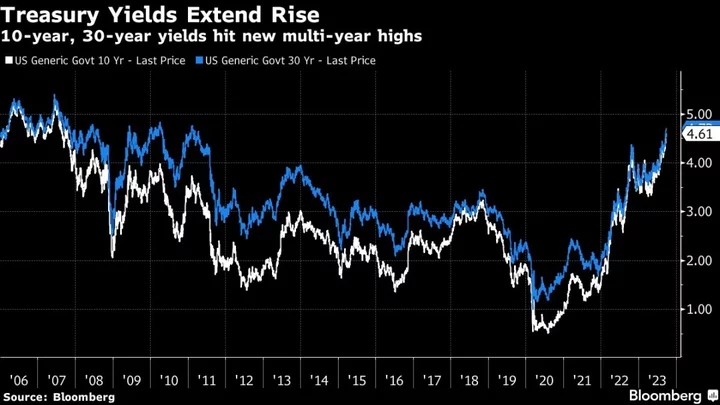
Asian Stocks to Fall, Treasury Yields Extend Rise: Markets Wrap
Shares in Asia headed for early declines as investors grappled with the expectation of higher interest rates and
2023-09-28 08:26
